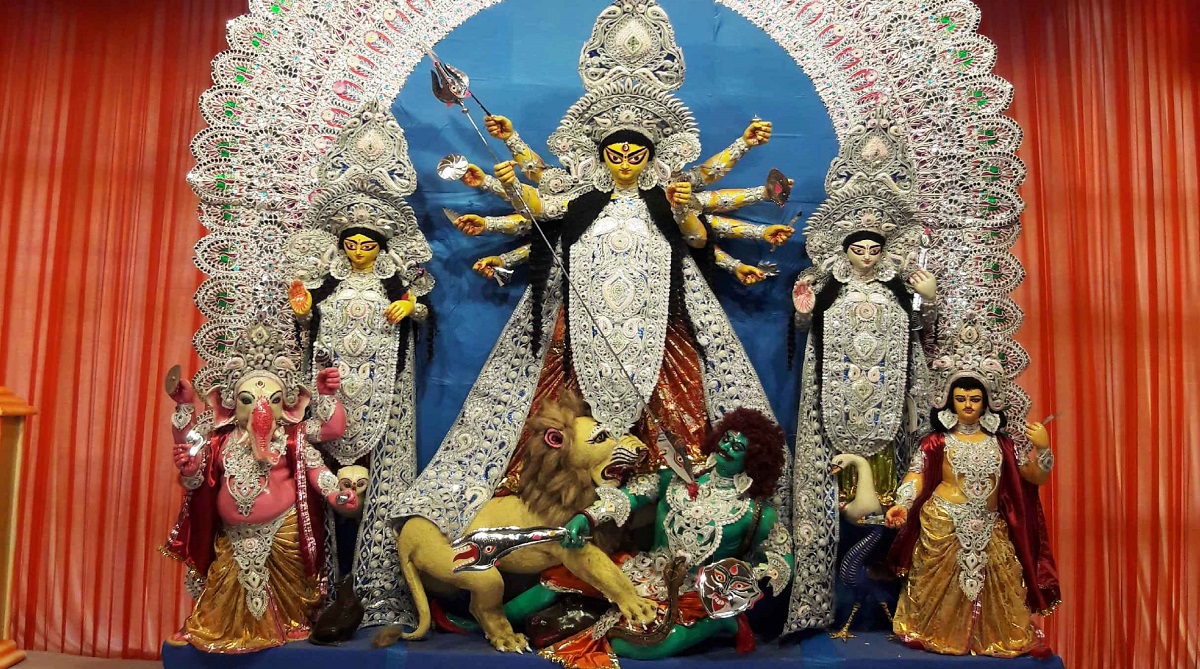Perils of addictions
A recent study by University College London has presented the results of its findings on the impact of smoking on life expectancy in rather dramatic terms.
The Tripura merger agreement made it mandatory for the government to continue the sponsorship of temples run by the Hindu princely rulers.

Durga Puja. (Photo: iStock)
Alcoholic drinks and animals including goat, pigeons and buffaloes are offered as items of sacrifice in a 300-year-old Durga Puja sponsored by the Tripura government.
To maintain the royal family’s traditional sanctity, the government has for the past seven decades been bearing the entire expenditure of Durga Puja at the Durgabari temple.
Advertisement
The Durgabari temple, established by the erstwhile royal kings, is located in front of the 117-year-old Ujjayanta Palace.
Advertisement
The five-day festivity began in Tripura on Monday with ‘Maha Sasthi’ or ‘Bodhan’ – the welcoming of Durga idols.
“Tripura is the only state where the government, be it Left or non-Left, is at the forefront of funding such a Hindu religious festival. The tradition has been going on since Tripura’s merger with the Indian union,” Subhash Das, a writer and a former civil service officer, told IANS.
The Tripura merger agreement made it mandatory for the government to continue the sponsorship of temples run by the Hindu princely rulers.
A full-fledged division – “Public Place of Worship (PPW)” or “Debarchan Vibhag” – under district magistrates in four of Tripura’s eight districts now bears this responsibility and the entire expenditure of several temples, including that of Durgabari.
Before starting the five-day worship of Durga, a procession led by the head priest goes to the palace to seek the consent of the former royal family to begin the puja at Durgabari temple, said Pandit Dulal Bhattacharjee, the head priest.
The head priest’s son Jayanta Bhattacharjee told IANS: “A young buffalo, several goats, pigeons, alcoholic drink, fish, meat, egg, ginger, many fruits are sacrificed during the five-day festival at Durgabari – all at government expense.”
Senior Deputy Magistrate Dhiraj Debbarma said this year’s budget was Rs 5.75 lakh, 10 per cent more than last year.
People For Animals (PFA) chairperson Maneka Gandhi, now a Union Minister, had some years back urged the district magistrates to stop the “cruel killing of animals in the temples”.
“Some years ago, a District Magistrate of West Tripura tried to stop animal sacrifice in the Durgabari temple but retreated following protests by the royal family,” Jayanta Bhattacharjee added.
Dulal Bhattacharjee said it was on the final day of ‘Dashami’ that the real splendour of the festival comes to the fore.
“The idols of Durgabari are the first to be immersed at Dashamighat with full state honours, with the police band playing the national song.”
Historian Pannalal Roy, who wrote many books on the history of royal era, said: “The centuries-old Durga Puja of Durgabari temple is unique in the sense that the prasad includes alcoholic drink, meat, fish, eggs and, of course, fruits.”
Though the Durgabari temple celebration remains the main attractions due to numerous reasons, community pujas organised by clubs and families also vie for much attention.
According to Tripura Police, 2,527 community pujas have been organised across Tripura: 958 in urban areas and 1,569 in rural areas.
Advertisement